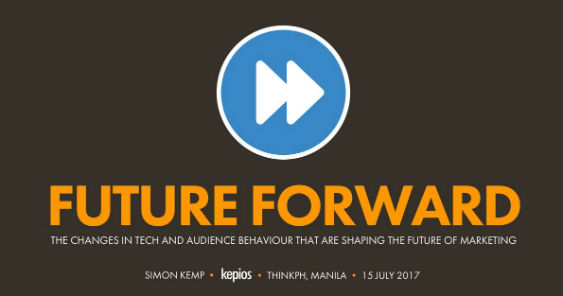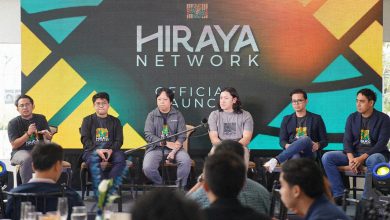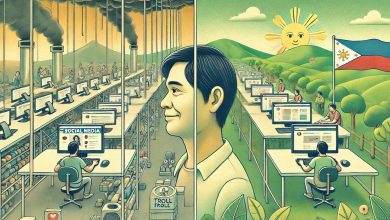PASAY CITY — Technology has become more than just trends and new gadgets. It has changed people’s behaviour, their psychology and physiology, and to an extent, shifted even culture. During Rappler’s #ThinkPH 2017 summit at the SMX Convention Center on Saturday, July 15, Simon Kemp, Founder, Kepios and Global Consultant at We Are Social identified three key changes that are happening and will happen in the world of humans and technology.
In memory of memories
In just 10 years, technology has changed how people act and think. Physically, the first reaction of many technology users today when confronted with a query is to reach for their smartphones to search for an answer. Psychologically, people retain and remember less details, because of their reliance on the internet (and Google) to provide information when and where they need it.
“Connected tech is now an integral part of everyday life and change the way our brains now,” Kemp said. He cited two industries greatly affected by this change in behaviour of consuming information. Advertising used to remind consumers of products, and journalism used to be the source of information of events happening in the world. Today, technology has enabled people to look for information on their own, any time, anywhere.
Decisionless shopping
While voice control and interfaces like Siri for iOS and Apple, Ok Google for Android and Google, and Alexa for Amazon have yet to be integrated in the Philippine technology landscape, these have made waves in more advanced countries.
“Hands free to eyes free,” Kemp stressed. Voice control is starting to make a significant impact on user experience. Users do not have to look at screens to obtain information or get things done.
For marketers, screens are important media for communication and advertising. Brands differentiate themselves through visuals – not so much when it comes to sound. Brands without distinctly unique pronunciations and sounds may find themselves mixed up with others that sound similar to their names. Languages and accents also play a major role in these audio-based interfaces. “How will marketing and journalism look and sound like if we couldn’t use screens,” Kemp asked.
Voice interfaces will also reshape consumers’ shopping and consumption behavior. According to Kemp, as people continuously use these tools, the machines will start making decisions for them. The device will ask the consumer what he/she wants, and it will suggest options according to recurring choices, those made by the consumer’s network on social media, and those recommended by different platforms the consumer uses. Because of data and algorithms, people’s decision-making processes will change.
The Blockchain
The Blockchain is yet another frontier for the technology world. “Don’t panic; participate,” Kemp urged.
“A blockchain is a protocol, not a platform. It allows things to happen,” Kemp said. This technology can be both scary and exciting. As an example, it enables “trustless” transactions, which means it does not rely on “trustworthy” parties (e.g. MasterCard, Visa, other third-party verifiers) to verify and keep records of these transactions. When a consumer uses a blockchain (like Bitcoin), he/she has his/her own record of transactions made, shifting the control back to him/her. “Blockchain keeps our data to ourselves, and to whom we want to give it to,” he said.
According to Kemp, “blockchains can change who we are” as citizenships and currencies can become more fluid. Bitcoin has already proved to be its own currency, independent of exchange rates and movements. Currencies can be devalued and controlled by governments. Blockchains are not in the mercy of any one entity. While this can be scary, Kemp reminded, “technology is not dangerous. The people who use them are.”









